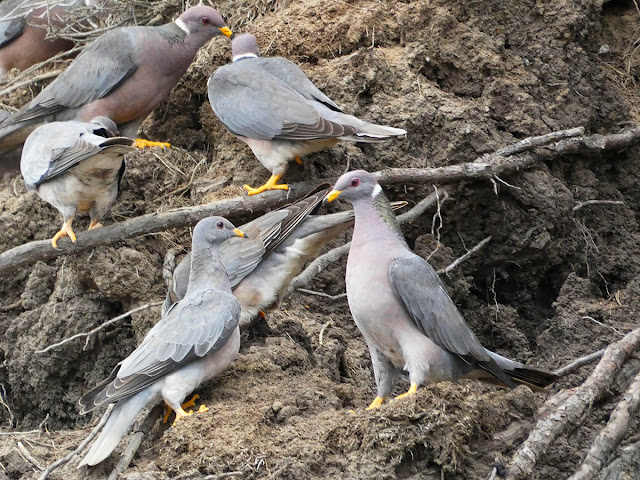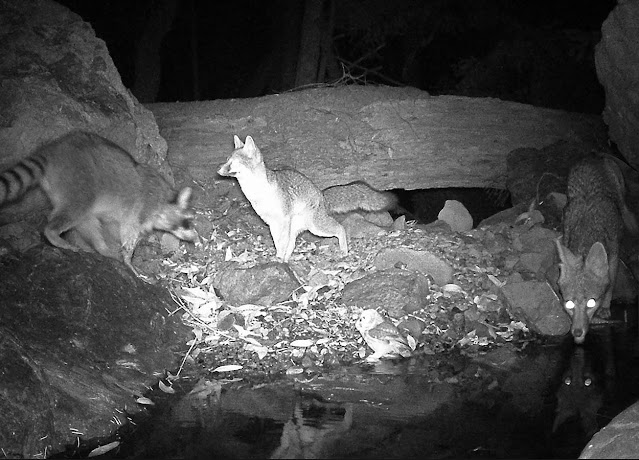 |
| Band-Tailed Pigeon |
I just read that band-tailed pigeons are having an outbreak of Avian trichomonosis (which is caused by a protozoan rather than a virus like bird flu, but I took alliterative license in the title of this post). So far this season an estimated 200-300 of these sleek and colorful California native pigeons (Patagioenas fasciata monolis) have succumbed to the virus, which thankfully is a far cry from the estimated 18,000+ that died during the record-breaking warm years of 2014 and 2015. Meanwhile, an estimated 5,600 birds were taken by hunters in the Pacific Coast region in a recent season, which lasts only eighteen days (it's split into two nine-day seasons by region).
Infection with avian trichomonosis isn't always fatal to the bandies, but it can cause lesions in the upper digestive tract that block the passage of food and even air, and eventually cause death. The birds encounter the parasite from contaminated water or food, and adults can infect their chicks when feeding them. The parasite, Trichomonas gallinae, can infect domestic fowl and other wild bird species as well, including raptors that eat infected birds.
Bird feeders and baths are believed to be sites of transmission of the parasite and should be cleaned regularly to help prevent infection.
 |
| Bandies Feeding on Soil (or something in the soil) at Agate Beach in Bolinas |
 |
| Band-Tailed Pigeon Showing Its Tail Feathers |
 |
| Bandies at a Watering Hole |
 |
| Four Other Water Hole Visitors (Montage) |
* * *










